Shifting the Culture to Secure Podium
Published on January 18th, 2018
Malcolm Page was hired a year ago as Chief of U.S. Olympic Sailing, and with the focus of international competition to be in the USA with the World Cup Series Miami on January 23-28, Scuttlebutt editor Craig Leweck checks in with Malcolm for an update.
What’s it mean for the US Olympic Sailing Program to have a World Cup Series event in the USA?
There’s only four of them currently per year, with two in Europe, one in Asia, and so for one of them to be hosted in the United States is pretty special. It’s a big event and it gives us this really great opportunity to compete locally against the best internationals. This is particularly significant for the US sailors that haven’t yet fully immersed themselves into an Olympic campaign.
This opportunity is further capitalized by 8 of the 10 Olympic classes having scheduled three day events during the Martin Luther King weekend. For those not able to compete in the World Cup Series, these events were open and gave them a chance to line up against the very best. For those people who are looking for Olympic pathways, or just enjoy sailing Olympic boats, these events delivered in spades.
Bringing prominent events to the USA, whether they be the World Cup Series or World Championships, must have an immense ripple effect.
Absolutely. US Sailing has been marketing this as one of their strategies to help promote the sport of sailing and allow people to progress to whatever level they want. Being able to have these prestigious regattas locally is a huge advantage. Certainly, in the Olympic world, any opportunity where we can make it local and have the Europeans travel is a win.
Let’s talk about what has occurred within the Olympic program for this new quad.
What’s been in the forefront of my mind across the last year is rather than having the athletes solely determine how to achieve their goals, which has been common in the past, we’re trying to get them the expertise and take the lead. Central to this initiative is employing really good coaches and making them available for the athletes.
While we haven’t been able to do this across all 10 classes, we are starting with the best chances for medaling in 2020 and then looking at 2024 and beyond. This is huge relief for the athletes to have guidance by experts that have been there, such as David Howlett who was instrumental in Ben Ainslie’s Olympic career, and Luther Carpenter who has guided American athletes to five medals in four different classes.
And there’s been an initiative to share expertise amongst that broader coaching community, correct?
The first coach’s symposium was in 2016 and it was all run by the Olympic Department. It proved to be such a success that for second edition, held this past November the Education Department took over and really dug into this opportunity by organizing two days of workshops and hands-on sessions with some of the leading sailing coaches in the country. This is a huge win for the coaching community, but from the perspective of the Olympic program, we are hugely enthusiastic about this movement. The future success of the program is significantly impacted by the training young people get before they get fully immersed in their Olympic campaign.
Prominent events such as the World Cup Series are a measure of progress, and that progress is brutally measured by how many medals are won. In 2017, only one medal was won, albeit a gold medal by the Men’s 470 Team of Stu McNay and Dave Hughes. What are the realistic expectations next week?
I will start by saying the results in 2017 was a little disappointing. We can say there was some progress in certain classes, but overall it was pretty weak. As for this year’s event, I don’t anticipate having any large breakthroughs. Making significant progress takes a long time, and for those people thinking I can expedite that with a magic wand, I wish they were right.
What we are confronting is the need for a huge cultural shift, and while this may be an over-exaggeration in some areas, in other areas of campaigning it probably is huge. So in general terms, there’s got to be this overall strategy approach change to reach the goals we are after.
From a leadership standpoint, without doing this shift, we can’t make the progress needed, and that has previously been the country’s status for multiple quads.
Of course, the program has benefited from tons of amazing people that come through. People like Caleb Paine who bat above his average and delivered a medal, or someone like Anna Tunnicliffe who is so gifted and came through and delivered.
But the problem is there hasn’t been a sustainable system behind them, to support not only these people that bat above average, but also multiple others that give the program depth. That’s what other countries such as Britain and Australia and New Zealand are able to do.
It’s multiple years of building this confidence, and knowing how to battle in the heat of the moment, and deliver even when the environment around them is not right. So I don’t see a huge shift that’ll happen this month. It’s just because the game is tough that way. There’s so many professional teams out there.
There were three events at the Rio 2016 Games which had athletes fall short of medaling but positioned for success in 2020, yet they chose not to continue. For the program to see sustainable success, it would seem important that athletes in which an investment is made fulfill their potential?
Absolutely, and that highlights this desperate need for a cultural shift, as well is being able to support a larger group. We’ve got to work as a team. We’ve got to have glue not only in each individual class but then also from the full-on umbrella across the whole team. So one of the things I’ve instilled is we’re going to meet three times a year as a greater team.
We had our first one in Colorado Springs in early November last year. The focus was on medical and physical screening along with fitness testing. We also had a couple of outside presenters for the psychological standpoint. We got the team to set the values, mission, and vision of the sailing team and what the logo means, and also we talked a lot about what needs to happen to fulfill goals in year two of the quad.
We just finished our second camp during the first week of January which combined the Sailing Team with the younger sailors in the Olympic Development Program. This was a really good chance for those youngsters to rub shoulders with the starting team as they are the prospects for 2024, 2028 and even 2032. We all worked together on the water and our off the water time focused on sailing-related topics such as weather, rules, nutrition talks, Miami local knowledge. We also gathered the group for an organized clean-up session.
With ten Olympics events, and sailors at various stages, bringing everyone together can be very impactful. We even have a coach-sponsored barbecue coming up for all the sailors in the program, and anybody else who is sailing under the American flag this month. These group activities show there’s more than just them individually, and we seek for this to be a step in the direction of further creating this true sense of the team.



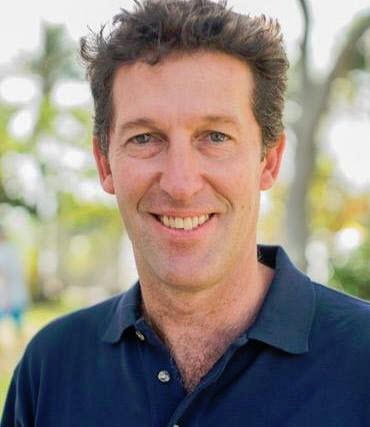


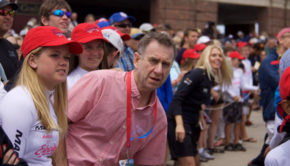
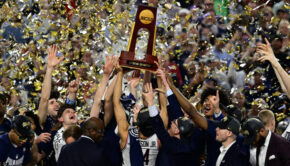
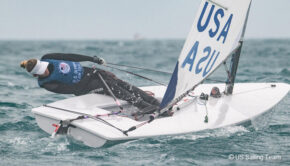
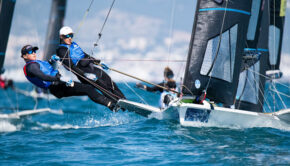
 We’ll keep your information safe.
We’ll keep your information safe.